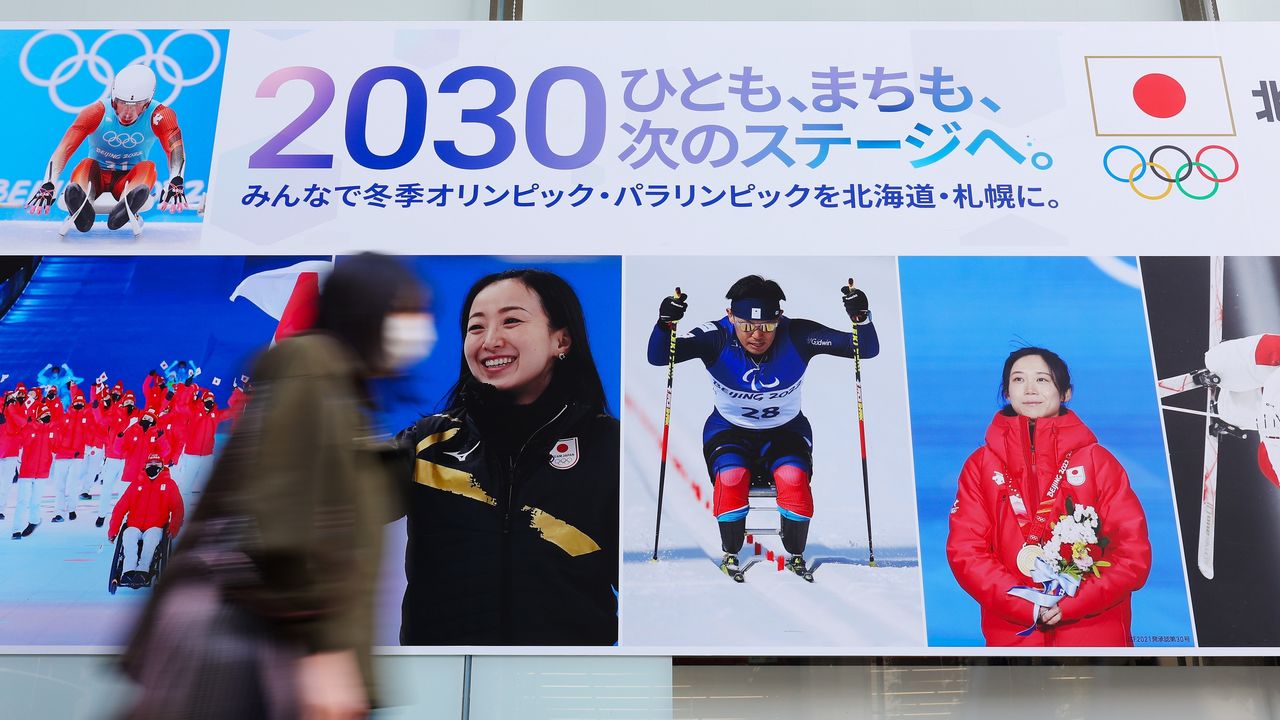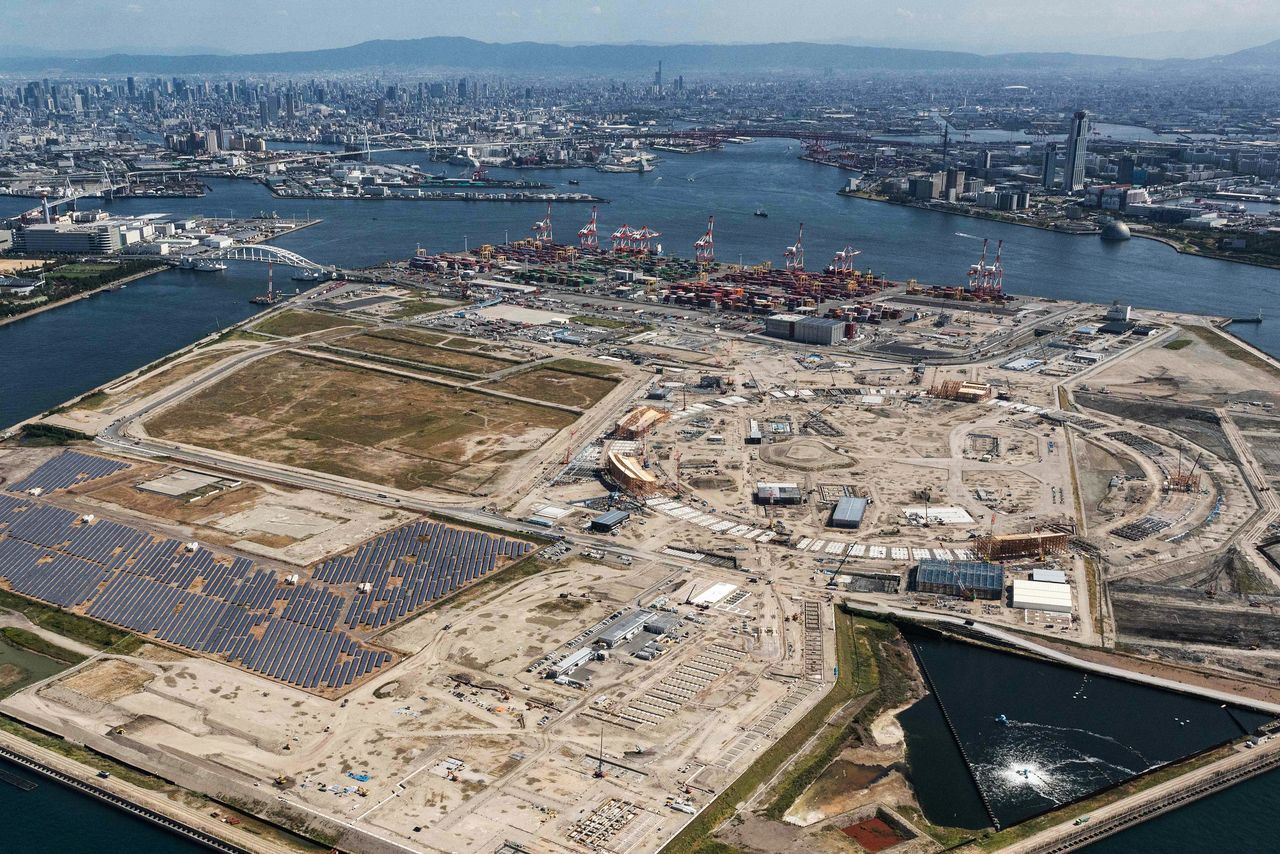
Why Japan Needs to Stop Putting Faith in Big Events
Sports Society Economy- English
- 日本語
- 简体字
- 繁體字
- Français
- Español
- العربية
- Русский
Second Sapporo Games in Doubt
On October 11, Japan Olympic Committee President Yamashita Yasuhiro and Sapporo mayor Akimoto Katsuhiro held a press conference in Tokyo. Yamashita kicked off with the following statement:
“In view of recent developments, the JOC and the Sapporo municipal government have decided to discontinue their campaign to bring the 2030 Winter Olympics to Sapporo, and instead explore possibilities for 2034 and beyond. Despite recent changes to the way the Olympics are run and a review of governance arrangements in response to the series of scandals related to Tokyo 2020, we have yet to gain agreement from the people of Sapporo, and for this reason I proposed to Mayor Akimoto that the bid be withdrawn.”
The following day, the International Olympic Committee held its executive board meeting and general assembly in India. In a move that went against the wishes of the Sapporo government, which has said that it will bid for the 2034 games, the IOC agreed to select the host cities for the 2030 and 2034 games at the same time. Candidates for 2030 include cities in Sweden, Switzerland, and France, while 2002 host city Salt Lake City is the favorite to host the 2034 Winter Olympics. It is predicted that the list of candidates will be narrowed down before the end of the year. If the host cities for both the 2030 and 2034 Olympics are indeed to be selected at that time, it will leave Sapporo with no time to rework its strategy, effectively dooming its 2034 bid.
At the Sapporo municipal assembly session held after the IOC meeting, Mayor Akimoto said that rather than being bound to a schedule, he would “redouble dialogue with the people of Sapporo in an effort to win the bid.”
While Akimoto has yet to come out explicitly in favor of a bid for 2038, it seems a given that Sapporo will have to completely withdraw from the candidate city selection process for earlier games, and otherwise rework its strategy. Meanwhile, a local citizens’ group is petitioning for the issue to be put to a referendum. Sapporo’s citizens are divided, and the local government will be unable to push forward with its plans in a way that ignores the wishes of the people.
Failure to Account for Inflation Creates Budget Blowout
In 2018, the organizers of World Expo 2025 Osaka Kansai, which will be held on an artificial island called Yumeshima, allocated ¥125 billion to build the expo pavilions. Two years later, however, this figure had increased to ¥185 billion, and more recent plans call for further increases to ¥235 billion. While organizers attribute the budget blowout to a failure to foresee higher materials and labor costs resulting from inflation, there are fears that if current economic conditions continue, the project could end up costing double the initial budget.
Difficulties are also foreseen in regard to revenue. Sixteen corporate members of the Kansai Economic Federation (Kankeiren), including those headed by the Federation’s chair and vice chair, have been requested to purchase advance tickets, but the response has not been good. Each corporation has been asked to sell between 150,000 and 200,000 tickets at ¥6,000 a piece, working out at between ¥900 million and ¥1.2 billion per company. As the extent of delays becomes more evident, these corporations are having second thoughts about their involvement. Amid increasing concerns about finances, the Japanese government has declared that it will dip into the treasury to pay the Expo’s ¥2 billion security bill, meaning that taxpayers nationwide will subsidize an event that was supposed to be entirely privately funded. Prime Minister Kishida has indicated his intention for the government to lead preparations, and has also announced a policy under which senior officials from the Ministry of Economy, Trade, and Industry and the Ministry of Finance will be sent to the Expo site.
In an opinion poll conducted by the Mainichi Shimbun on the issue, the most popular response, at 42%, was “the Expo should be downsized to cut costs,” with 35% of respondents selecting “the Expo should be called off altogether.” Like the Olympics, the Expo is the subject of harsh public criticism.

Yumeshima, photographed in October 2023, is the site of World Expo 2025 Osaka Kansai, currently the subject of concern due to delays and ballooning construction costs. (© AFP/Jiji)
The Myth of Growth and Why Japan Never Learns
In the 1960s and 1970s, the Japanese economy was in the grips of Prime Minister Ikeda Hayato’s “income doubling plan.” The many bids made subsequently by the Japanese government for major international events appear to pursue the growth myth of that era. Let us review the major events bid for since the 1964 Tokyo Olympics that were so symbolic of Japan’s postwar recovery.
- 1970: Osaka Expo
- 1972: Sapporo Winter Olympics
- 1975: Expo ’75 (Okinawa; “The sea we would like to see”)
- 1985: Expo ’85 (Tsukuba)
- 1988: Nagoya Summer Olympics (bid lost to Seoul)
- 1990: International Garden and Greenery Exposition (Osaka)
- 1998: Nagano Winter Olympics
- 2005: The 2005 World Exposition, Aichi
- 2008: Osaka Summer Olympics (bid lost to Beijing)
- 2016 Tokyo Summer Olympics (bid lost to Rio de Janeiro)
- 2020 Tokyo Summer Olympics (postponed until 2021 due to COVID-19)
- 2025: World Expo 2025 Osaka Kansai
- 2030: Sapporo Winter Olympics (bid abandoned)
There are also examples of events being cancelled. The World City Expo, which was scheduled to take place in 1996 in Tokyo’s-up-and-coming waterfront district, was cancelled with less than a year to go after Tokyo voters elected Governor Aoshima Yukio (1995–99), who had contested the gubernatorial election on a “no-Expo” platform. While the Expo’s cancellation put the future of Tokyo’s waterfront developments up in the air, though, the area experienced a revival in 2011 when, under Governor Ishihara Shintarō (1999–2012), Tokyo was selected to host the 2020 Olympics.
Osaka lost its bid to host the 2008 Olympics to Beijing. The proposed site: Maishima, a man-made island in Osaka City. Maishima is adjacent to Yumeshima, the island that will host World Expo 2025 Osaka Kansai, a fact that illustrates that the links between the Olympics and international expositions extend to waterfront developments.
Outdated Models of Profit
It was originally hoped that Sapporo’s Olympic bid would coincide with the extension of the Hokkaidō Shinkansen to Sapporo, further boosting the local economy. Meanwhile, Yumeshima, the site of World Expo 2025, will host Japan’s first ever integrated casino resort. In this way, there is always an intimate relationship between these major events, commercialism, and profits from development.
But in Japan’s current low-growth climate, marked by declining birthrates, it is unrealistic to expect continual growth. Is the very idea of hosting international events as a way of boosting Japan’s status not out of date?
Highly commercial affairs, Olympic Games are plagued by corruption, and have become far removed from the Olympic ideals of promoting world peace and fostering youth. In the Internet era, with information from around the world is at our fingertips, the idea of international expositions to showcase the technologies and culture of different countries have also become somewhat staid.
The American political scientist Jules Boykoff coined the term “celebration capitalism” to refer pejoratively to the tendency for enormous sums of money to pour into events of mass celebration, turning the events into a mere pursuit of profits from development projects. A good example of that is the Tokyo Olympics, held in 2021, a year late, due to the pandemic.
The Japan National Stadium was completely rebuilt for the games, and subsequent plans to redevelop the nearby outer garden of Meiji Shrine have attracted vehement opposition. As a result of this opposition, plans to cut down trees in the garden have faltered. While this redevelopment project was a product of the Olympics, now, after the games, it faces an uphill battle.
Shining Sustainably
In his book, Kenshō korona to Gorin: Kawaranu Nihon no shippai rensa (Covid and the Olympics: Why Japan Is Still Making Mistakes) Kōkugakuin University sociology lecturer Yoshimi Shun’ya, who has long studied issues associated with the Olympics and international exhibitions, writes, “Since the 1990s, Japan has been in a state of gentle contraction. In times like this, we will not find happiness by continuing to apply the ‘festival doctrine.’ Instead, we need to find ways of improving people’s lives in an economy that will not grow anymore.”
The term “festival doctrine” is similar in meaning to “celebratory capitalism,” referring to postwar Japanese development policies that focused on major events like the Olympics and world expositions.
On the significance of hosting the Sapporo games in the current economic climate, Sapporo Mayor Akimoto once said, “If we are to modify our social systems in a way that enables us to earn foreign revenue, we need to send our message overseas. We must share with Sapporo residents our commitment to use the Olympics to change our city.”
You can understand why a regional center with a shrinking population would look to overseas tourism for hope. Akimoto probably sees the Olympics as a shot in the arm for the local economy.
When Japan’s asset bubble burst in the early and mid-1990s, there was much talk about a book by the politician Takemura Masayoshi (1934–2022) titled Chīsakutomo kirari to hikaru kuni Nihon (Japan: Shining in a Small Way). In the book, Takemura argues that Japan should not attempt to become an economic, political, or military superpower, but should instead try to develop in a different direction. Years later, Takemura used the following words to describe how he felt after leaving the LDP to start his own political party, the now defunct New Party Sakigake:
“I wanted to throw cold water over those politicians and citizens who still had illusions of becoming a great power in the afterglow of the asset bubble, and to encourage reform. I wanted Japan to shine as a small power, an idea I expressed with the phrase ‘a country of quality and simplicity’—in other words, one that exemplifies quality and authenticity.”
Even today, there is much that we can learn from these words. But what should Japan do now that rapid growth is a thing of the past? Rather than chasing aging dreams, Japan should aim to shine in a small, but sustainable, way, in basic areas that are intrinsically linked to wellbeing, like environmental policy, welfare, and education.
(Originally published in Japanese. Banner photo: A poster for Sapporo’s highly unpopular 2030 Olympic bid, photographed in Sapporo in October 2023. © Jiji.)